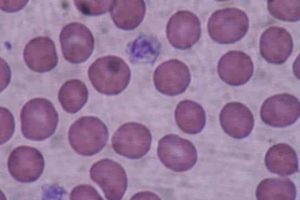journal of leukocyte biology
More than allergies: Histamine may be a possible drug target for multiple sclerosis
If you think histamines are your nemesis during allergy season, here’s something that might change your perspective. New research published in the Journal of Leukocyte Biology (http://www.jleukbio.org) shows that histamine could be an important mole…
Blame the environment: Why vaccines may be ineffective for some people
A new discovery may explain why a tuberculosis vaccine is not as effective for some people as anticipated, and potentially explains why other vaccines do not work as well for some as they do for others. In a research report presented in the December…
A sweet discovery raises hope for treating Ebola, Lassa, Marburg and other fast-acting viruses
When a team of European researchers sought to discover how a class of antiviral drugs worked, they looked in an unlikely place: the sugar dish. A new research report appearing in the Journal of Leukocyte Biology (http://www.jleukbio.org) suggests th…
New discovery suggests our lungs are ‘innately prone’ to silicosis and related diseases
For the nearly 2 million U.S. workers exposed to silica dust each year, a new discovery may help prevent or treat the development of chronic lung diseases related to this exposure. In the September 2010 issue of the Journal of Leukocyte Biology (htt…
Protein in Eye May Help Fight Autoimmune Diseases
A protein found in the eye and involved in its “immune privilege” has prevented and halted autoimmune eye disease in animal models and promises to aid in preventing and treating other autoimmune diseases, including multiple sclerosis and diabetes, according to scientists at the Schepens Eye Research Institute at Harvard University. Immune privilege is a special property of the eye that allows the eye to protect itself without the inflammation caused by the body’s conventional immune response to injury and infection.


